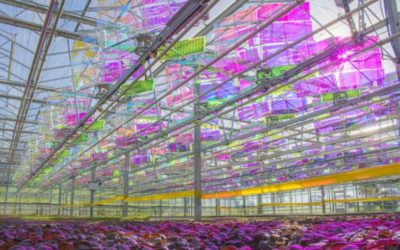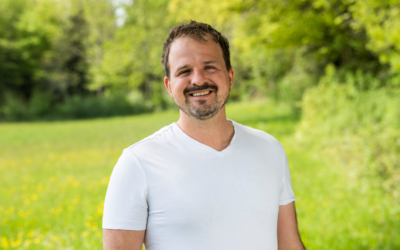Valley partner Givaudan has announced...
Innoterra, Formerly Pioneering Ventures, Aims to Transform the Global Food Ecosystem
Innoterra, Formerly Pioneering Ventures, Aims to Transform the Global Food Ecosystem
Innoterra aims to produce and supply high-quality, safe and traceable food from farm to fork in a sustainable, farm-friendly way.
Swiss-Indian incubator of agriculture, food and technology businesses, Pioneering Ventures, has set up a new corporate entity: Innoterra. With a footprint in 14 countries, Innoterra provides products and services to 65,000 farmers. It also serves around 1.5 million consumers daily through fully traceable, high-quality food products, including farm produce and milk products.
Formed to transform the global food ecosystem, Innoterra is committed to creating value for all stakeholders with its impact-driven purpose. To fulfil this mission, the company is creating an integrated platform to connect the entire agri-food value chain. The data-driven technology platform provides farmers access to tech solutions from AI, big data and analytics to on-ground tech-integrated farm tools for traceability and monitoring. It also integrates knowledge sharing and easy access to affordable finance. The platform aims to build a community of connected stakeholders, driving economies of scale and benefiting each stakeholder from collective resources and expertise.
Innoterra’s Mission
Innoterra CEO, Ron Pal, said, “As food security and sustainability is becoming an important global challenge, we must critically question the status quo of the industry and the entire food ecosystem… We see our company as an integral part of the food ecosystem and view our role as an orchestrator with the mission to provide consumers access to healthier and more sustainably produced food while empowering farmers and other stakeholders in the system.”
Meanwhile, Chairman of Innoterra India, Akshaya Kamath, said, “While developing and rolling out our platform, we will continue to scale up our food operations in India and further expand our sourcing and distribution footprint in regions such as the Middle East, Eastern Europe and China… Our efforts enable us to sustainably supply high quality, traceable products around the year to the addressable adjacent markets with a population of close to three billion people.”
All five subsidiaries of Pioneering Ventures will now be under Innoterra: Desai AgriFoods (formerly Desai Fruits and Vegetables), Samaaru, Farmlink, Milklane and Innoterra Tech (formerly Lateral Praxis).
For more information:
Innoterra AG
Baarerstrasse 18
6300 Zug
Phone : +41 44 508 05 35
Or you may also contact them here.
Latest News
Givaudan collaborates with Dole Asia Holdings to upcycle green bananas into a natural texturiser
Voltiris secures CHF 4.8 million seed financing to power high-tech greenhouses
Valley partner and Swiss startup,...
Eggfield Co-Founder Silvan Leibacher on growing eggs in a field
The Igeho Rising Star Award celebrates...
Spotting the Rising Stars in food tech with Igeho Brand Director Benjamin Eulau
As a leading international trade fair...



